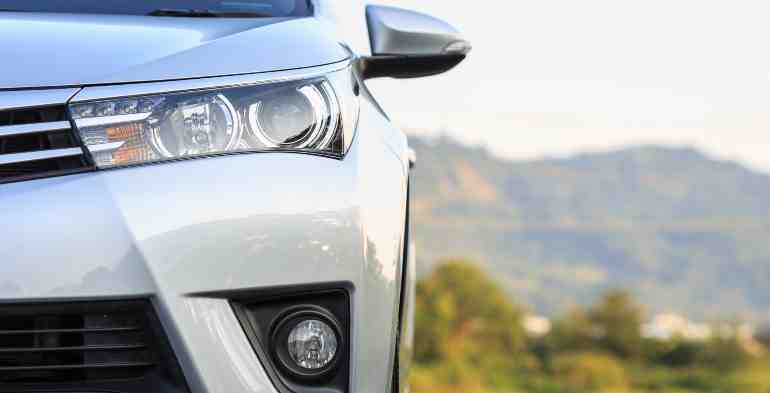The Difference between PCP Finance and Car Loans
Car
3
min read
25 Nov 2019

Buying a car can be complicated enough without all the car finance that comes with it. Inspecting the car chassis and locating the sills (yeah, us neither) can be enough to send your head spinning. And that’s before you even hear a mention of the Guaranteed Minimum Future Value.
Yes this is a term you’ll have to come to grips with if you opt for PCP finance to buy your new car. Don’t get us wrong, we know PCP finance is very convenient. But we also know it’s incredibly inflexible. And that the low monthly repayments can distract you from a raft of fine print that might otherwise send you running.
Read on for a simple, no-frills explanation of PCP finance. And an explanation of how PCPs differ from a traditional car loan.
What is PCP Finance?
 First off, PCP simply stands for Personal Contract Plan. And ultimately, that’s where the simplicity ends.
First off, PCP simply stands for Personal Contract Plan. And ultimately, that’s where the simplicity ends.
A PCP is one of the least flexible forms of finance. Essentially PCP finance is a lease scheme. It makes financing a new car seem affordable - due to low monthly repayments. In effect, with a PCP you hire the car for a period of time, usually between three and five years. And you make the repayments over this time. At the end of the PCP agreement, you’ll have to make the balloon payment in order to actually own the car. This payment is also known as the guaranteed minimum future value (GMFV).
With a PCP, you also need to be conscious of your mileage. This is because the balloon payment, or GMFV, will have been calculated with your annual mileage in mind. Crucially, with a PCP you are also restricted with what you do while you are still ‘hiring’ the car. If your financial circumstances change and you find you can no longer afford the monthly repayments, well, too bad. You can’t sell the car to pay your debt, as it’s not yours to sell.
If you still want to go ahead with PCP finance, then consider the below before you sign the dotted line.
-
You may be charged a rescheduling fee to extend the term of the PCP
-
You need to take note of the cap on the number of miles/kilometres you are allowed to clock up over the period of the PCP
-
You may be requested to commit to certain car servicing agreements
-
Ensure you always enquire about additional fees and charges. You are entitled to a list of all additional charges - so ask the garage for this before you sign
What happens at the end of a PCP agreement?
PCP finance can set up a situation where the easiest and simplest option is to roll over into a new car. And a new PCP plan. PCPs are effectively a way of trying to ensure that you will come back and buy another car from the same dealer or manufacturer. All well and good, but what if you no longer like the brand of car or they range that dealer/manufacturer has to offer?
The balloon payments can also come as a nasty sting in the tail for many. Anecdotally, credit unions report that members are taking out loans in order to pay off the PCP balloon payment. Perhaps it would have been easier to just get a credit union car loan in the first place?
You can read more about PCP finance on the Competition and Consumer Protection Commission’s website.
What is the difference between PCP finance and a car loan?
 A car loan is far more clear-cut than PCP finance. Applying for a car loan is a straightforward transaction where you borrow money (from your local credit union if you want the most affordable and flexible loan) to pay for the car. You own the car immediately. You can drive the car as much as you like. as there is no cap on the mileage. And you can sell the car on at any time you want. If you get a car loan before buying the car, you are effectively a cash buyer and you may even be in a position to negotiate a better deal.
A car loan is far more clear-cut than PCP finance. Applying for a car loan is a straightforward transaction where you borrow money (from your local credit union if you want the most affordable and flexible loan) to pay for the car. You own the car immediately. You can drive the car as much as you like. as there is no cap on the mileage. And you can sell the car on at any time you want. If you get a car loan before buying the car, you are effectively a cash buyer and you may even be in a position to negotiate a better deal.
Remember, PCP finance, just like loans, are now included in the Central Bank’s Central Credit Register. So both forms of finance will appear on your credit history.
If you do want to apply for a car loan from your local credit union, you must first become a member. Don’t worry, it’s a very straightforward process. You can read all about it here.
You can also inform yourself of the benefits of a credit union loan if you want more reasons to be convinced.
And if you want to find out how much a car loan will cost you right away, simply click below to send the query directly to your local credit union. Simple as that!
Submit an Online Loan Enquiry